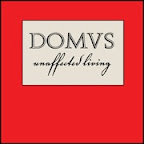 Environmentally sustainable practices are at the forefront of many new home builders, designers and green enthusiasts minds and in the minds of many Americans that believe in retaining the Earth's precious resources and atmosphere.
Environmentally sustainable practices are at the forefront of many new home builders, designers and green enthusiasts minds and in the minds of many Americans that believe in retaining the Earth's precious resources and atmosphere.
Akin to the organic food movement, wood certification is the new question raised when people are in the market to buy "responsibly". And like the organic food movement, that raised the question of "why eat chemically modified, or toxic food-when there is a better, cleaner food called organic?".
Wood certification asks "why buy wood from those who butcher the world's forests, when there are resources derived from forests that are managed to particular environmental and social standards?"
But ethics and practices are very different and both equally hard to monitor.
The Forest Stewardship Council (FSC), is one of leading global organizations that has had an impact on rethinking and branding forestry management. But they are not alone. Starting in the 1990's third party organizations began developing standards and practices in responsible forestry. They offer certification and accreditation to companies and suppliers that adhere to their standards and definitions of best practices. You may see the FSC label at your local building supply store or hear more about sustainable products as green building becomes more widespread. But like many organizations the FSC has their critics.
Just some food for thought as we consumers grapple with labels and their meanings. We want to know that something is safe and good for us and the environment. I believe that there is a lot of good work being done to insure the future of the world's resources but I also believe that we have a ways to go.













0 Comments:
Post a Comment